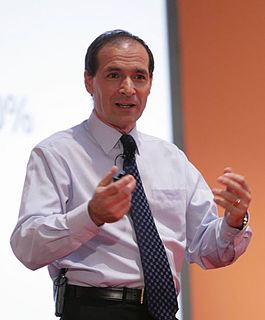A Quote by Ellen Goodman
We each have a litany of holiday rituals and everyday habits that we hold on to, and we often greet radical innovation with the enthusiasm of a baby meeting a new sitter. We defend against it and - not always, but often enough - reject it. Slowly we adjust, but only if we have to.
Related Quotes
Innovation is a subset of creativity. Innovation often deals with product launches and is often relegated to the C-suite or to heads of R&D departments. Innovation requires creativity, but creativity is something that is much more broad. It applies to people at all levels of an organization. Today, we all are responsible for delivering "everyday creativity". Small creative acts that add up to big things.
Most people believe a new idea must be fully baked and ready-for-primetime. That is like saying a newborn child should have a college degree and be self-sustaining on day one. Like children, new ideas need to be nurtured, shaped, and protected. People often hold back ideas since they are not ready to defend sharp criticism. Companies that celebrate "creative sparks" and reserve judgment while ideas mature are the ones that enjoy significantly more creativity and innovation.
We who are rich are often demanding and difficult. We shut ourselves up in our apartments and may even use a watchdog to defend our property. Poor people, of course, have nothing to defend and often share the little they have. When people have all the material things they need, they seem not to need each other. They are self-sufficient. There is no interdependence. There is no love.
































